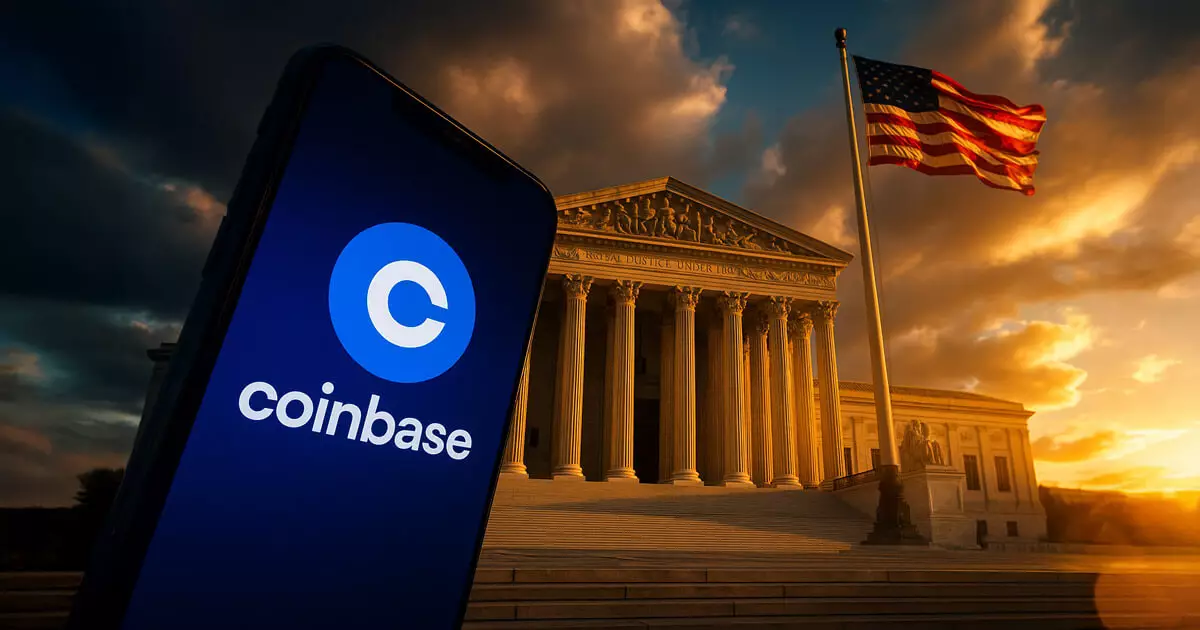The recent refusal of the U.S. Supreme Court to hear the case of Harper v. Faulkender signals a pivotal shift in the landscape of digital privacy and government authority. By declining to intervene, the highest court effectively endorses a lower court’s ruling that grants the IRS sweeping access to user data stored on centralized cryptocurrency exchanges like Coinbase. This decision—more a tacit approval than a rejection—cements a perilous precedent: in the eyes of the law, your financial transactions in the crypto sphere are readily accessible to government officials, akin to traditional financial accounts, without the necessity of a probable cause warrant. The silence from the Court is deafening, and it signifies a dangerous abdication of judicial oversight, empowering federal agencies with unprecedented surveillance capabilities.
This outcome isn’t merely a procedural formality; it’s a seismic reinforcement of government authority over financial privacy. The Court’s inaction effectively ratifies the principle that cryptocurrency, often portrayed as a frontier for individual sovereignty, is now firmly ensnared by the regulatory machinery designed to enforce tax compliance. It amplifies concerns that the crypto ecosystem is morphing into a new frontier where privacy is sacrificed at the altar of government oversight, raising serious questions about the future of financial liberty in the digital age.
Challenging Privacy Norms in the Digital Era
At its core, this case exposes the erosion of Fourth Amendment protections—a bedrock principle initially crafted to shield individuals from unreasonable searches and seizures. Traditionally, the amendment underscores a “reasonable expectation of privacy,” which, in the realm of financial records, generally requires a government warrant backed by probable cause. However, courts have long held that sharing information with a third party—in this case, Coinbase—diminishes this expectation, under the so-called third-party doctrine. By voluntarily entrusting their data to a centralized exchange, users have been deemed to accept a lower level of privacy, thereby enabling government agencies to subpoena or compel disclosures with fewer legal hurdles.
In the context of cryptocurrencies, this doctrine assumes even greater significance. Crypto investors often perceive self-custody wallets or decentralized exchanges as shields against prying eyes, safeguarding their financial autonomy. Yet, the Court’s silence suggests that these protections are far from absolute. The government’s broad authority to access transactional data diminishes the privacy boundaries that many users believed would protect them from unwarranted intrusion. This reality is not only concerning but also indicative of the mounting influence that regulatory and surveillance interests wield over the digital economy.
Implications for Innovation and Personal Sovereignty
The implications of this ruling ripple far beyond mere legal technicalities. For many crypto enthusiasts, this outcome acts as a wake-up call—a clarion warning that participating through centralized exchanges today equates to relinquishing a significant degree of privacy. The shift in legal stance could spur a mass migration toward self-custody wallets and decentralized platforms, where individuals retain control over their private keys and reduce the exposure of their transaction history. While such alternatives may offer better privacy, they also demand greater technical proficiency and come with their own set of risks, especially for retail users unfamiliar with managing digital assets securely.
From a broader philosophical perspective, this development underscores the tension between innovation and regulation. Crypto advocates often champion decentralization as a means to empower individual sovereignty and resist state overreach. However, the Court’s stance questions whether these ideals are achievable within a framework that consistently favors regulatory enforcement over personal privacy. It’s a sobering acknowledgment that, at least for now, government authorities possess formidable tools to monitor, track, and potentially suppress digital financial activity—placing millions of Americans’ assets under a level of scrutiny comparable to traditional banking systems.
Political Realities and the Future of Crypto Oversight
Behind the legal proceedings lies a political landscape increasingly inclined toward stringent regulation. The IRS’s aggressive pursuit of crypto compliance underscores its desire to close what it perceives as tax loopholes and unreported income. While many center-right perspectives prioritize fiscal responsibility and rigorous law enforcement, these principles must be balanced against the risk of overreach—particularly when individual rights are collateral damage.
The vast power granted to government agencies in this case demonstrates a clear commitment to integrating crypto within the existing financial regulatory framework. The message is unambiguous: digital assets must be subject to the same accountability and transparency as traditional financial institutions. Such a stance does not threaten the fundamental utility of cryptocurrencies but ensures that their use is compatible with state interests, often at the expense of user privacy.
As more Americans observe the shift, there’s a growing realization that the libertarian promise of digital sovereignty remains elusive without active resistance and technological innovation. Still, the legal framework seems firmly aligned with a vision of surveillance that prioritizes government authority over personal liberty. If this trend continues, decentralized solutions might become the last bastion for privacy-conscious users craving true financial independence—though such evolution will be slow and fraught with challenges.
A Reflection on Justice and the Balance of Power
Ultimately, the Court’s silence reframes the ongoing debate around privacy, regulation, and individual rights in the digital era. While some may argue that robust oversight ensures compliance, others must confront the fact that unchecked authority can swiftly encroach on the liberties that underpin a free society. The precedent set here signals a definitive move toward accepting government overreach as the norm, especially in areas like cryptocurrency where the boundaries of privacy are still being tested.
As digital assets continue to evolve in complexity and scope, the question remains—how much space will be left for personal privacy before it is entirely subsumed under state surveillance? The Court’s refusal to act underscores a troubling assumption: that the government’s interest in tax compliance justifies encroaching on what was once considered private, even sacred, financial information. Whether we accept this or push back remains a defining challenge for a nation balancing innovation with individual rights.
















Leave a Reply